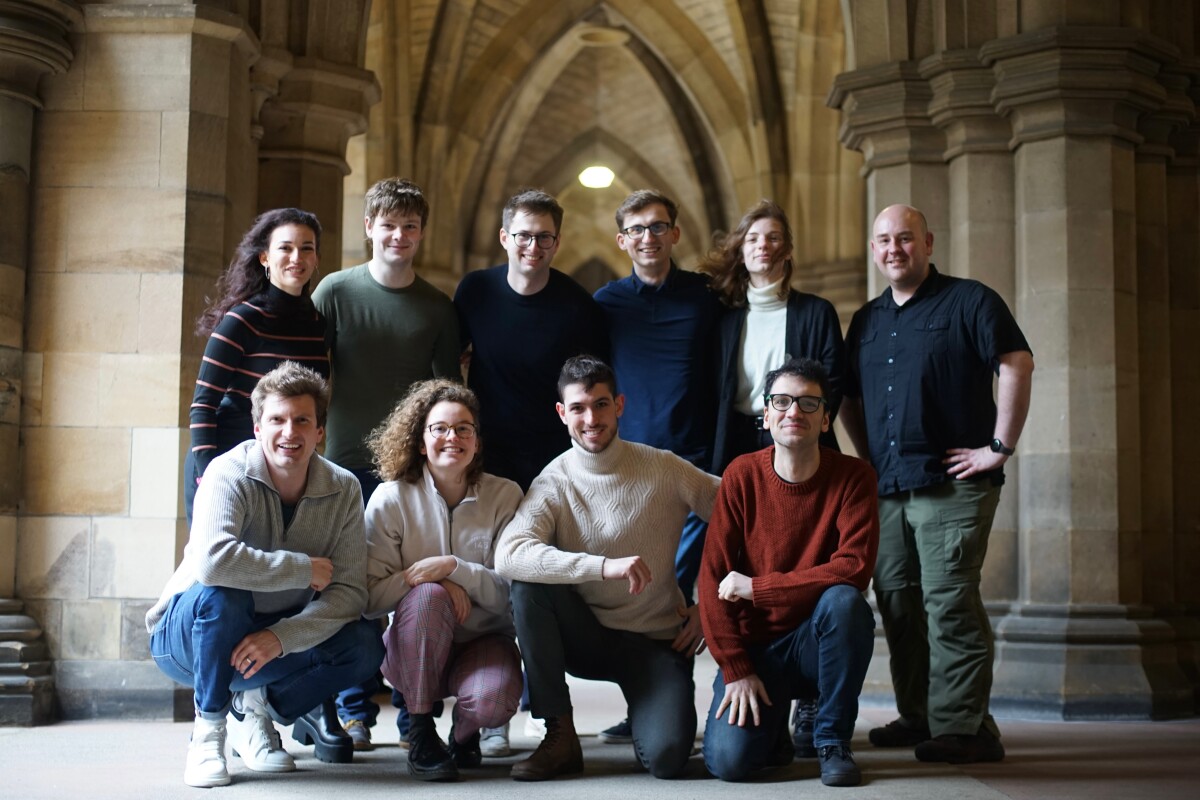Task agents will be able to generalize to new domains with limited effort with scaleable and automatic knowledge acquisition leveraging large-scale language models. GRILLBot will be able to react to specific users’ skill levels and preferences by performing complex task.

Sophie Fischer - Team leader
Fischer is a 1st year PhD student specializing in multimodal representation learning and common sense reasoning. She was part of the 2021/22 GRILL lab team that finished 1st place in the Alexa Taskbot Challenge, where she was the team’s conversational UI developer and gamifier in chief. She was developing methods for multimodal task augmentation last year and designed the front-end interface.
Carlos Gemmell
Gemmell is a 3rd-year NLP Ph.D. student at the University of Glasgow supervised by Jeff Dalton. He is broadly interested in decoupling memorization from reasoning in language models. At present, he explores how language models can generate programs as tools to break down tasks, access external knowledge and make their reasoning explicit. During his Ph.D., Carlos led the winning Amazon Alexa Prize TaskBot team as one of ten global teams successfully putting ideas of code + language models into practice for question answering and dialogue management.
Niklas Tecklenburg
Tecklenburg is a 4th year Informatics undergraduate student at the University of Glasgow and has been working on Software Engineering and Computer Vision projects in the past. He has taken courses related to machine learning and natural language processing. His research revolves around improving the quality of Question Answering systems.
Philip Zubel
Zubel is a fourth-year undergraduate Computing Science student. He have developed full-stack financial applications and has taken courses related to machine learning and natural language processing. His research revolves around improving the quality of taskgraph representations and analyzing them in search.
Ekaterina Terzieva
Terzieva is a 5th year MSci Computing Science student. She has taken courses in Machine Learning and has experience building full stack applications and mobile games. Her research focus will be on dialogue policy and decision making. She is also responsible for coordinating the team and the day-to-day management of the project.
Eva Kupcova
Kupcovaa is a 4th-year undergraduate student completing her degree in Computing Science. She has developed full-stack applications, which
included accessibility testing and improvement. She took courses related to natural language processing and human-computer interaction. She will assist with UX development, perform user lab studies, enhance user engagement and improve the individual user experience based on their knowledge.
Federico Rossetto
Rossetto is a third-year PhD student specializing in multi-modal representations of music and text for conversational systems. He is an expert in applied ML, including reinforcement learning, and competed and won in the Fujitsu AI-NLP challenge 2018. He develops novel methods for multi-modal representations. He will focus on the multi-modal representation learning of video and text for the offline models. He will also assist with the core development and deployment of conversational models. Hr was a member of the 2021/22 GRILL Lab team that finished 1st place in the Alexa Taskbot Challenge.
Iain Mackie
Mackie is a third-year PhD student specializing in multi-task retrieval and information extraction graph neural models. He develops new methods for retrieval for complex tasks using knowledge bases and text-based graph neural networks. His recent publications (SIGIR 2021, SIGIR 2022, SIGDIAL 2022, IMuR 2022) focus on neural ranking models, conversational systems, entity-centric search, and multimodal interactions. He previously co-founded an e-commerce data science startup and has industry experience across various tech and finance roles. He was a member of the 2021/22 GRILL Lab team that finished 1st place in the Alexa Taskbot Challenge.
Dr. Jeff Dalton - Faculty advisor
Dalton is a Senior Lecturer in AI and IR in the School of Computing Science at the University of Glasgow where he leads the Glasgow Representation and Information Learning Lab (GRILL) (https://grilllab.ai). His research focuses on text understanding and conversational information seeking. He completed his Ph.D. at the University of Massachusetts Amherst in the Center for Intelligent Information Retrieval. Later at Google Research, he worked on web information extraction as part of the Knowledge Discovery Team (Knowledge Vault) and on language understanding in the Assistant Response Ranking team. He was the lead organizer for the TREC Conversational Assistance Track (CAsT) (http://treccast.ai) and also helped organize the Complex Answer Retrieval track. He is the recipient of a UKRI Turing AI Acceleration Fellowship on Neural Conversational Assistants and received research awards from Google, Amazon, and Bloomberg. He is the faculty advisor for the 2021/2022 Alexa Prize Taskbot challenge team, GRILLBot, that won first prize. He holds multiple patents in retrieval, information extraction, and question answering.

















